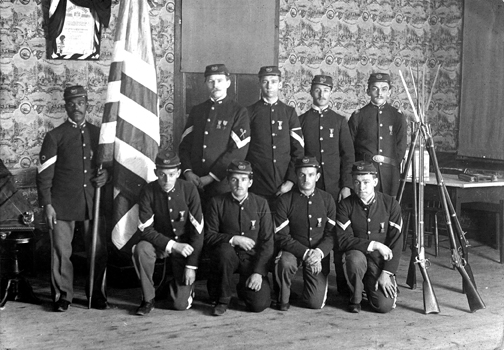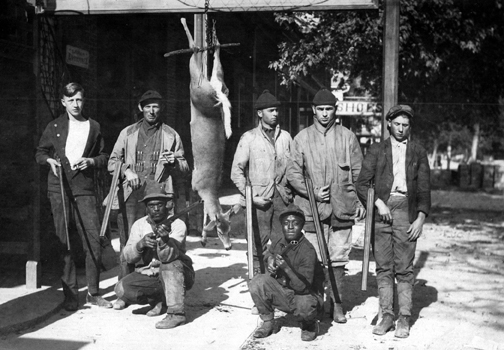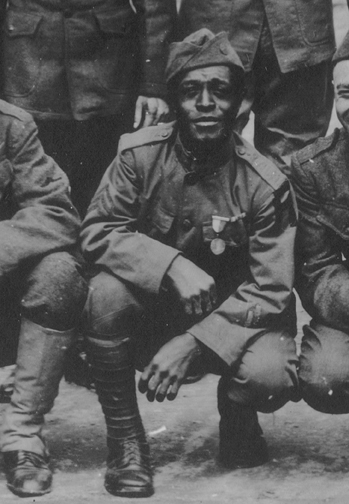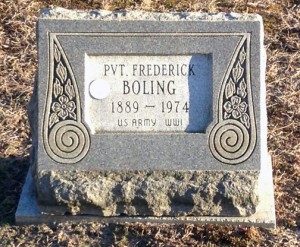At the beginning of the twentieth century, several of the family and community members that made up the Boling Settlement had either passed away or relocated from the Port Republic area to nearby cities such as Atlantic City and Egg Harbor City. Only one original resident resided within the settlement by 1905, and that was Charles Boling. Charles lived with his wife, Ann Eliza Trusty Boling, and their thirty-year-old son Samuel Boling, as well as Samuel’s wife, Carey Smith Boling, and their three children John, Anna, and Charles.
Before the respective deaths of Samuel and Charles Boling in 1915 and 1916, Alexander Smith returned to the Port Republic area in 1909—and possibly to the Boling Settlement—only to pass away one year later in 1910. Charles’s wife, Ann Eliza, also passed away in 1916, prompting Samuel’s newly widowed wife, Carey Smith Boling, to relocate to South Carolina with her children and thus officially end the period of the Boling Settlement.
After moving to Egg Harbor City in 1878, Eli Boling’s wife Emma gave birth to a son, whom they named Fred, in 1889. Having grown up in a largely German-speaking community, Fred learned to speak German at an early age, eventually landing him his nickname “Fritz,” and by the time he was an adult spoke about four or five languages. Fred’s language skills were put to good use during his service in World War I, as he was called upon to interrogate captured German soldiers. As Eli Boling’s son, Fred participated in the Sons of Veterans of the United States—as well as the group’s successor, Son of Union Veterans of the Civil War—and was also a member of the American Legion.

Sons of Veterans, Post 23 (c. 1905). Standing: l-r: Fred “Fritz” Boling, Henry Voss, Jr., unk., Oscar Preidt, Hugh Meincke; kneeling, l-r: unk., Henry Geller, unk., Robert Michel. Image from the collection of the Egg Harbor City Historical Society, used with permission.

Egg Harbor City deer hunters (undated). Standing, l-r: Carl F. Jensen, George Dolts, Charles Saur, Joe Slavinski, unk.; kneeling, l-r: Al Boling, Fred “Fritz” Boling. Image from the collection of the Egg Harbor City Historical Society, used with permission.

Frederick “Fritz” Boling with sergeant’s stripes in an American Legion photo. Image from the collection of the Egg Harbor City Historical Society, used with permission.
By the time of his death in 1974, Fritz Boling had become a well-known and respected member of the Egg Harbor City community, and thus obtained both a burial plot and a fitting memorial stone in the same cemetery in which his father was buried, the Egg Harbor City Cemetery.
With only the former Ebenezer AME Church cemetery remaining as a physical presence, the story of the Boling Settlement was once in danger of being lost to history. Recent efforts, however, have sparked an interest in the Bolings’ story and helped to bring it to light.
Recognizing the significance of small African American communities of the antebellum period, Wendel White, Distinguished Professor of Art at Stockton, has been instrumental in recovering the stories of black settlements in South Jersey for over twenty years, including that of the Bolings. His photographs of the Boling cemetery and historical research into the settlement, part of his Small Towns, Black Lives project, raised considerable interest.
Important efforts have also been made by members of the Jewish War Veterans Post 39, who continue to recognize the service and sacrifices made by the Boling veterans and to seek improvements to the cemetery, and the Col. Richard Somers Chapter of the Sons of the American Revolution, an organization that has placed American flags by each grave on holidays for the past ten years.
Unearthing the history of the Boling settlement enriches and betters our understanding of local South Jersey history. Moreover, it provides us with an enhanced, personalized view of a small African American community that existed from the antebellum period through the first decades of the twentieth century. By acknowledging and appreciating the settlement’s existence, and through trying to piece together its history, we honor all of the family and community members that made up the Boling settlement, as well as the South Jersey African American community at large.

